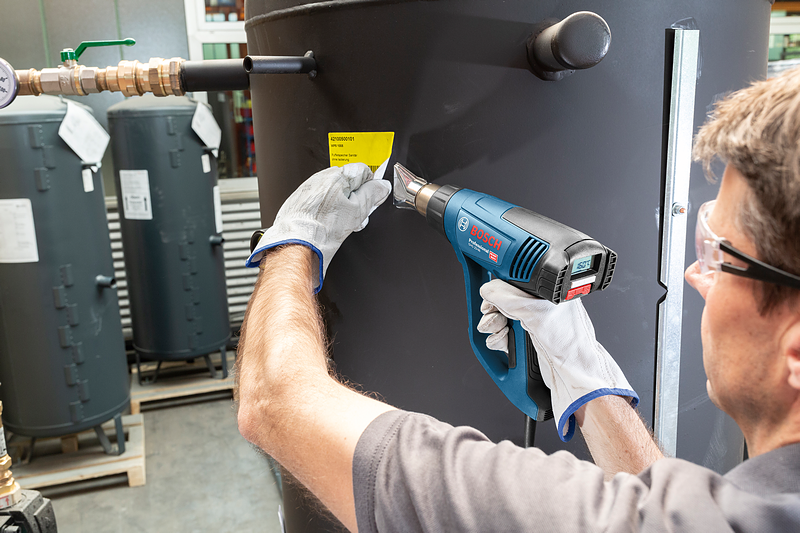Shooting Heat – Heat Guns: All You Need To Know

Heat guns have been used throughout the years to perform a variety of applications. In their most rudimentary forms, the paraffin and bottled gas blowtorches, these heat guns would produce a naked flame which would also run the risk of scorching the wood or any other surface which the user would work in. The modern-day electrical heat guns have an advantage in this regard.
Electric heat guns produce hot air at very high temperatures to cause an instant heat source whereas the antiquated “blowtorches” of the past had to build up the required heat. The heat on electric heat guns is also constant and does not need to be intermittently relit.

How do heat guns work?
Much like a conventional hairdryer, heat guns contain a fan that pulls air into the tool’s body, passing through an electric heat element and finally out of the heat gun nozzle.
What to consider when purchasing your heat gun?
Temperature is one of the major factors which separate the pricing and application capabilities of these electronic heat guns. The build quality of the bodies of these heat guns is also very important, with cheaper heat guns having more plastic elements that are prone to damage during heavy usage.
Here is a table which will help you identify the correct heat gun for your application:
| APPLICATION | REQUIRED TEMPERATURE |
| Drying paint or varnish | 30 – 130 °C |
| Drying out damp wood | 100 – 200 °C |
| Softening adhesive | 300 – 400 °C |
| Bending plastic pipes | 200 – 300 °C |
| Heat-shrinking plastic film | 200 – 300 °C |
| Welding some plastics | 330 – 400 °C |
Heat Gun Nozzles
- Flat Nozzle
Ideal for spreading the hot air over wide and narrower area.
- Reflector Nozzle
This is the nozzle to use for wrapping round plastic or copper pipe. This nozzle allows the user to spread the hear around the pipe surface.
- Reducer Nozzle
Ideal nozzle for when the operator needs to concentrate heat directly onto a particular area.
- Glass Protector Nozzle
This nozzle is used by tradesmen in order to strip paint on windows, weather wood or steel.
Heat Gun Safety
- Do not store the tool before allowing it to cool down.
- Do not cover air inlets around the heat gun
- Do not operate heat gun with the nozzle directly held against a surface.
- Do not use the heat gun for stripping lead-based paints
- Do not use the heat gun close to any flammable materials
- Be aware of where the nozzle is placed next to, after use
- Do not insert anything down the heat gun nozzle while on.


Comments
Add comment